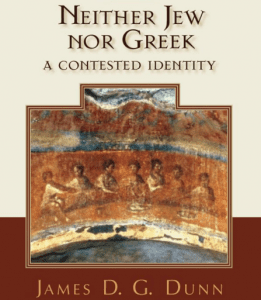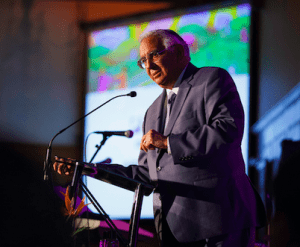Deep in the heart of Judaism in the centuries leading up to Jesus was a dual conviction: that God had elected Israel as creation-restoring agents and, right next to this, the manifold brokenness of creation and Israel and the Land and the priests and the Temple. What sustained their hope? One Story: the Exodus. They told its story, sang its songs and continued to celebrate God’s victory. Why? Someday that same God would do it all over again. So argues Tom Wright in his new book, Simply Jesus.
 The Exodus Hope included seven elements: a wicked tyrant, chosen leader, victory of God, rescue by sacrifice, new vocation/new way of life, presence of God, and a promised/inherited land.
The Exodus Hope included seven elements: a wicked tyrant, chosen leader, victory of God, rescue by sacrifice, new vocation/new way of life, presence of God, and a promised/inherited land.
When you think of the Master Story of the Bible, the one that shaped the Bible and that shaped how Jews thought of themselves, what were the most important two or three stories? Which one do you think was most important? Which story most “controls” how your church thinks? [This is a big one folks, and it gets right to the heart of the meaning of the word “gospel” in the New Testament.]
Then along comes Jesus announcing God was becoming King. Jesus’ preaching then is the start of a campaign. Three actions pull this into focus: celebrations at meal time, healing of one person after another, and forgiveness. This is what it looks like — Jesus was saying — when God takes charge, when God becomes king.
Luke 4:16-30. Jubilee, etc, and all those themes of liberation. And, yet, not quite what everyone was thinking would occur. Jesus could not assure the people they would be affirmed; he revealed a new order. Gentiles would be included and it would not be the vindication of the status quo. Jesus would not endorse “national ambitions” (77). Jesus would include the little people when the big God did big kingdom things.
At the heart of Jesus’ method of announcing that God was king was to tell stories of a new world order, stories that trade in some ways on the visions of Daniel. And his story was that “hearts would be transformed” (Matt 15:1-20; 19:1-12). When God becomes king there will be a cure for uncleanness of heart.
Let’s take stock of Jesus’ vision: he was claiming one true God, the God of Israel, and he was making himself central to what God was doing. How does this stack up with would-be kings in Jesus’ Jewish world? Tom Wright helpfully explores four such royal claims: Judah Maccabee, Simon bar-Kosiba, Herod the Great, and Simon bar-Giora. Each of these kings reshaped the Exodus Hope (above) and involved two major events: a battle (over the Gentiles or enemies) and a temple restoration.
Furthermore, and this gets to the heart of what some Jesus scholars have ruined, their royal claims involved both a present kingdom claim (the announcement had been made, the king was beginning to assume his rule) and a future kingdom claim (when the decisive battle was over). There is no need to choose the present kingdom (as some today want to do — as if it’s only about life in the here and now) and the future kingdom (as if we have to focus on the final event or life after death). For them and for Jesus it was the same: the kingdom was both present and future.
This sets the stage for Wright’s next chp: The Battle and the Temple, where we see Jesus’ own version of the Exodus hope.











